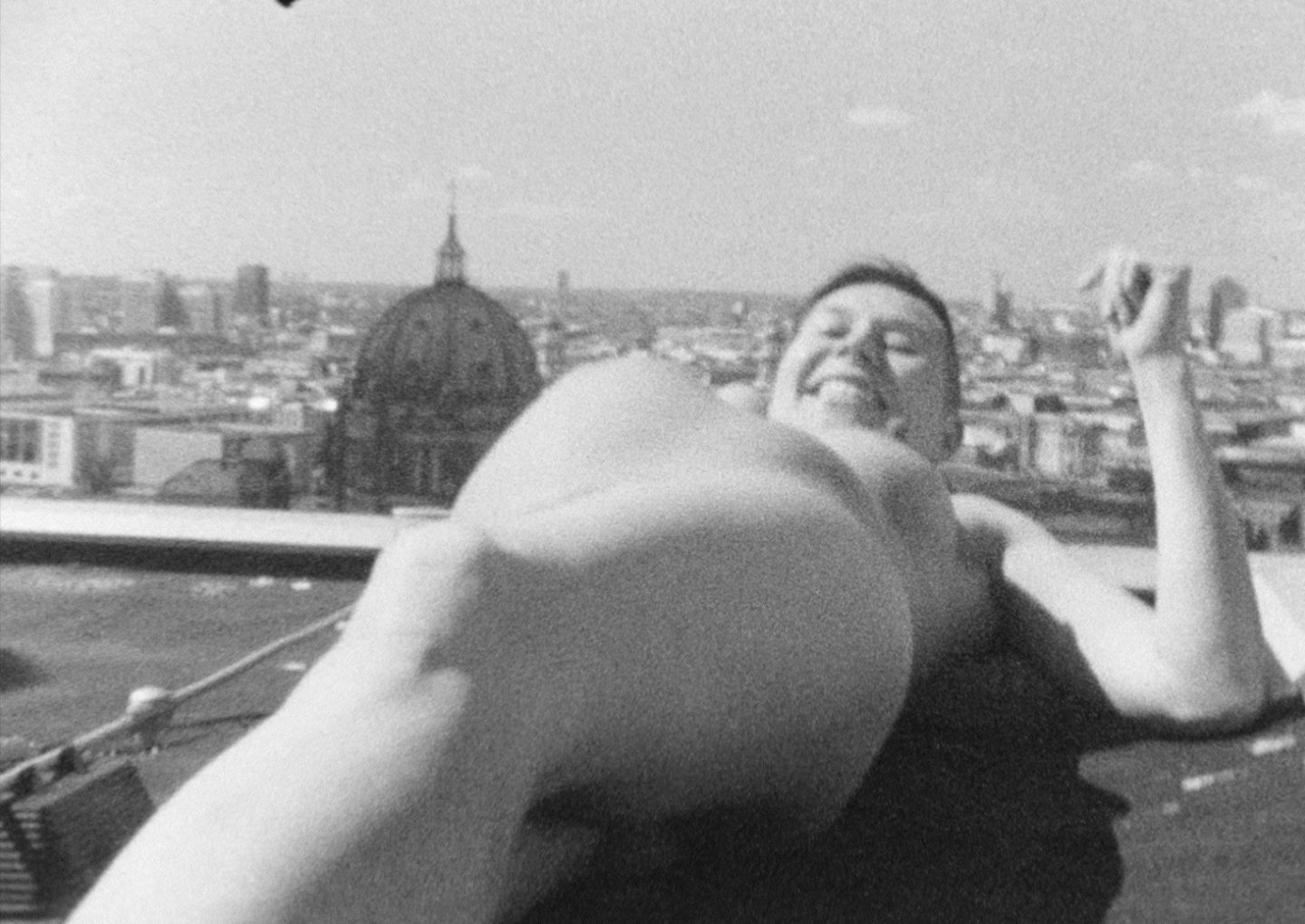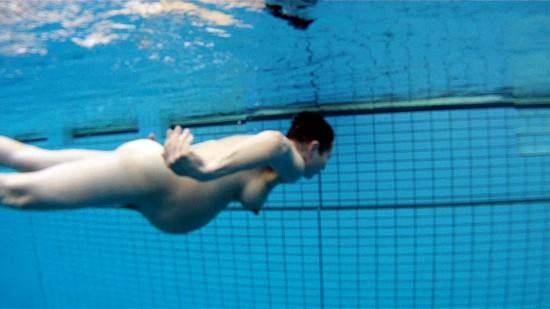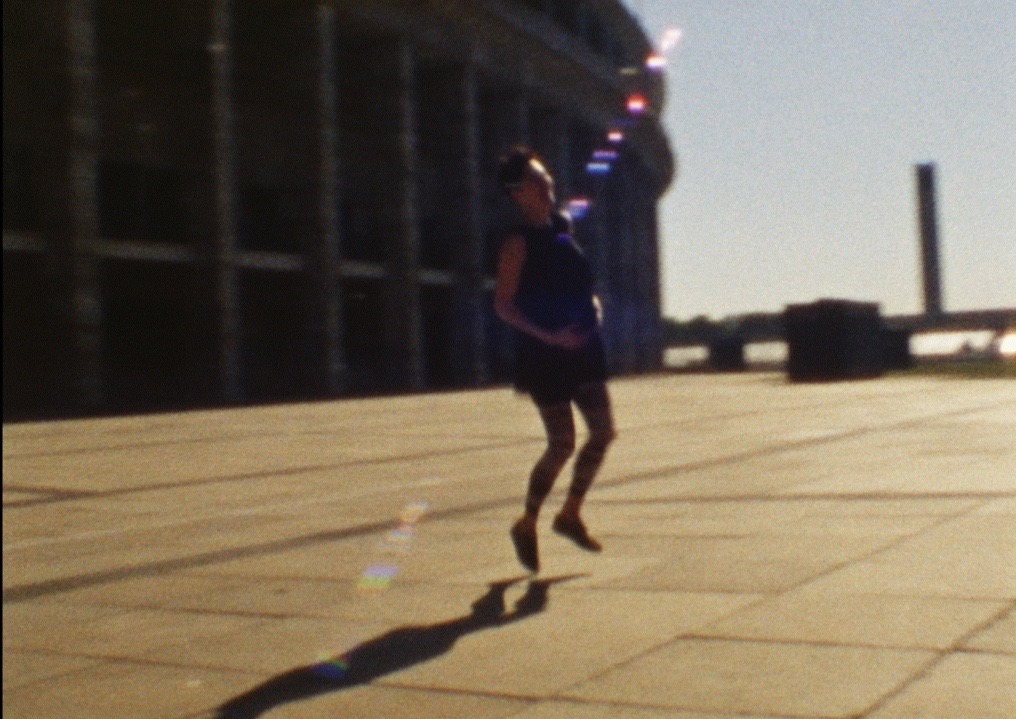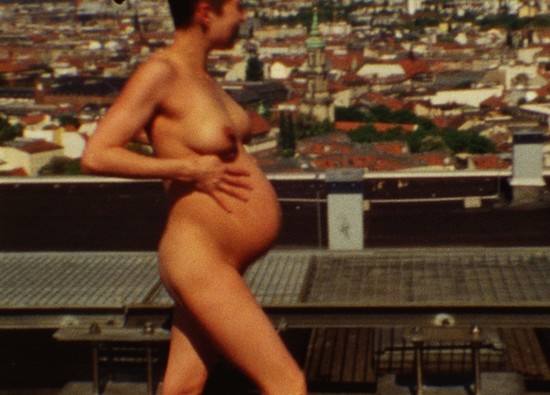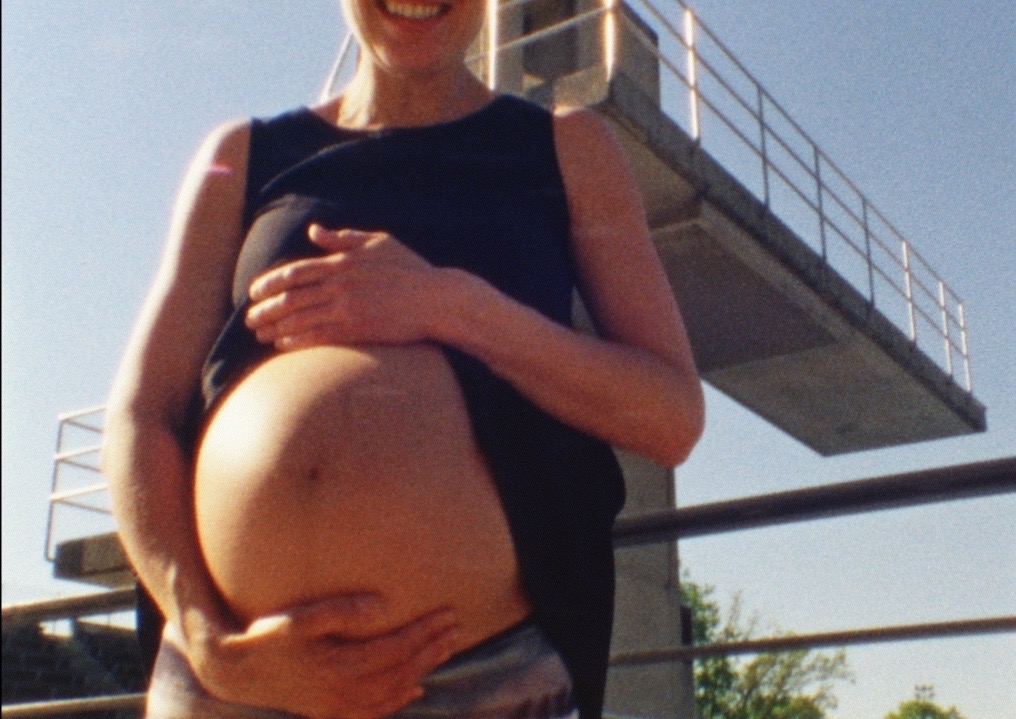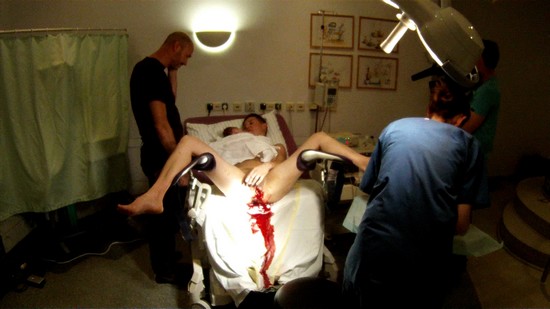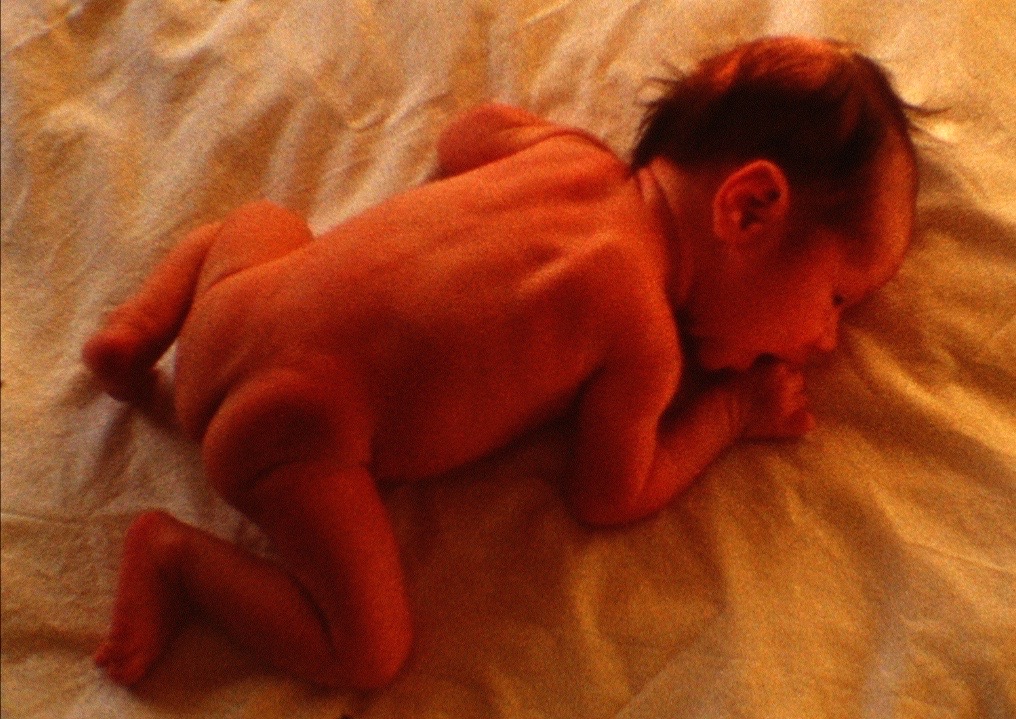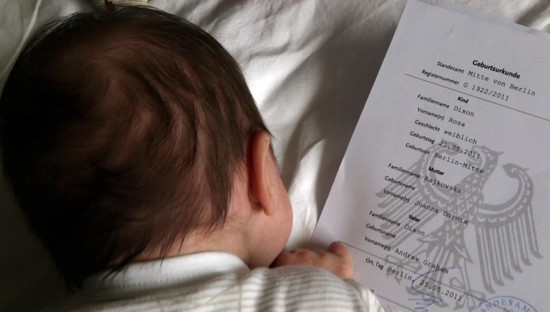Born in Berlin
2012,
life project, film, 20', collage series
Berlin
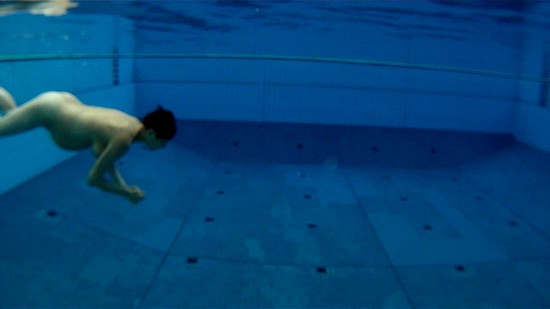
The idea of the project was for the artist’s daughter to be born in Berlin.

The process of ‚planting’ Rosa into the German cultural and historical soil was documented in the film – from the confrontation of the pregnant body with the Nazi-era architecture, through Rosa’s birth in the Charité hospital, to the burial of the placenta in front of the Reichstag. Born in Berlin explored both the personal and the political dimensions of this decision.

The historically charged locations in the city like the swampy shore of Teufelssee, the swimming pool at the Olympic Stadium or the lawn in front of the Reichstag were juxtaposed with the helplessness and vulnerability of the body. The newborn baby was a symbolic gift for the city, a potential for change, a new beginning able to transcend historical traumas. The intimacy of Super 8 film saturated the story with warmth, while also creating an emotional distance.


The essence of the project lay in the importance of one’s place of birth, both as a personal decision and a biopolitical fact. Born in Berlin marked the beginning of Rosa’s life and inevitably changed her biography. It remains an open-ended narrative.
Excerpts from the 7th Berlin Biennale newspaper: Berlin is a special state of mind. It is a city which cannot bear its history, which does all it can to live exclusively in the present, to delight in itself in the incomparable Berlin air and style. Berlin refuses to be naked, to expose its wounds or its painful side after the years of war and the post-war trauma. It desires to be an important cultural capital, elegant, cold and modern. To achieve that it uses architecture, art and sophisticated designs. It is becoming overgrown with fantastic buildings, it displays outstanding artists and presents remarkably attractive designs. Simultaneously, alternative art scenes are continually appearing, which is only a counterpoint to its smooth surface. If this was the only face of Berlin, it would not be the place for Rosa. However, all my senses tell me that Berlin is unable to deal with itself. Like a middle-aged man, good-looking, well-dressed, but at the same time worn out after years of suffering from a chronic disease that climaxed years back. Exhausted not only by what it has been through, but also with the attempts to verbalize it, the lack of language, the following complications and the amount of painkillers it needs to take daily. The disease has left wrinkles and bumps. Some parts of its body are totally dead. Here begins my strong, tough and unambiguous relationship with the city. I want to see those dead places, I want to touch them. I want Rosa to appear there.

Pregnant women live doubly. I have a feeling that this additional life, the tiny vibrating body inside me, is the only obvious answer I can find to this deadness. There is no need for any extra explanations except for the simple contrast of the living versus the dead, or what used to be dead. That is why the very presence of Rosa, is in itself a kind of description, appendix, footnote, comment and statement of a standpoint.
Rosa in Berlin. A Diary.
Sunday, 5 March, 2011.
London, E2 9BN, Cheverell House. The apartment on the second floor. Long night, broken with strange sounds from outside, someone was drilling something, a loud, drawn-out noise, and someone was wheezing. I sleep with Rosa in my belly: the small, stubborn, little body, hard-as-stone, which already has its own habits and which protests when it’s uncomfortable. Decisions have already been taken. Andrew will give up his job and we’re moving to Berlin. We will live on savings and occasional exhibitions and lectures. Andrew will be a full-time father. The intention is very simple – to give a little life to this city, to put Rosa in the middle of Berlin, filter it through her skin. Now, while she is still in me, through my skin and later, when she can look around. I believe that knowledge is acquired through breathing, eating, touching. Rosa will drink Berlin water and breathe the Berlin air. And then every time when she is asked about her place of birth, she will say: Berlin.
Thursday, April 14, 2011
En route from London to Berlin. I had a restless night. And a strange dream. I dreamt of the Dr. Narutowicz Hospital in Bydgoszcz. Where I was born. Someone was sick, I had to visit this someone. I went into the room. On the beds I saw soil. Beautiful, black soil. On the soil was cooked buckwheat and, on that, blood. Everything was covered with gore. There were letters propped up against the wall, side by side, uneven, freshly born Cyrillic letters. Each had a skeleton, made of human bones, I saw protruding knees and shoulders, ribs and muscles. Lots of meat: the letters were well nourished. Their white skin was covered with blood from the placenta. They were resting.
Wednesday, 4 May 2011
Charité Hospital. Dr. Thomas: nice, tough and direct. I asked, in a mildly trembling voice, not to be forced to have Rosa induced for early delivery. The induction was set by Dr. Thomas for today. The thought of an injection of oxytocin into my vagina put me into a slight panic. I convinced her that we should wait. I broke down in a restaurant whose name I do not remember. As the afternoon light seeped through the bamboo blinds on the windows, I was Rosa. The year was 2031. She was 20 years old. I could not see her because I was in her, inside her, very present, mute, helpless, but present. I saw, from inside her, the contours of her shoulders, wisps of fine hair falling over her shoulders. Dark blonde. She was upset about something and she was waiting for someone. With all the strength of someone struggling with depression, she experienced this afternoon, the miserable German afternoon light, this street – Marienburgerstrasse. She was at home here, but not living in Germany. Why did it frighten me? Because we were not there, neither Andrew nor me. I don’t know whether we were still alive. I realized that this moment, just before Rosa’s birth, will never return, that life ends and that, in a sense, it is about to end.
